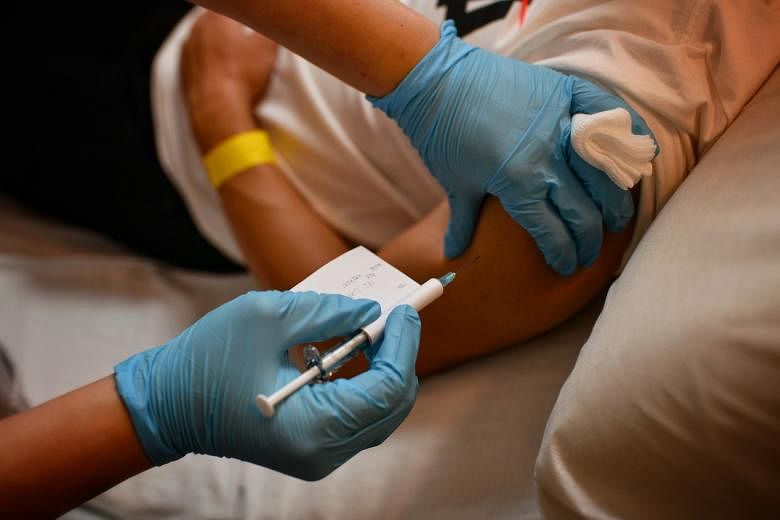Q How effective is the Pfizer-BioNTech vaccine that has been approved for use in Singapore?
A In November, final results from late-stage clinical trials published by the companies showed that the vaccine was 95 per cent effective at preventing Covid-19.
There had been 170 cases of the disease in its trial of more 43,000 volunteers, of which 162 were observed in the placebo group and eight in the vaccine group. Ten people developed severe Covid-19, one of whom received the vaccine.
The firms also said the vaccine was well-tolerated and that side effects were mostly mild to moderate and cleared up quickly.
As for the shot by Moderna, another leading front runner, the efficacy rate in late stage trials was 94.1 per cent at preventing the disease.
Singapore announced that it has also signed purchase agreements with China's Sinovac.
Researchers say the Sinovac vaccine was 78 per cent effective in a late-stage Brazilian trial, Reuters reported earlier this week, although the full results have yet to be published.
Q What criteria does Singapore use to decide whether to approve a vaccine?
A In line with international standards, only Covid-19 vaccines that are at least 50 per cent effective at preventing the disease will be approved.
Other factors, such as the potential risk of adverse incidents, and the severity of the health crisis, are also considered, Mr Gan told Parliament.
A lower threshold of efficacy may be accepted in the event of a very severe pandemic that requires the population to be vaccinated as quickly as possible, he said on Monday.
The authorities will also monitor how the vaccine is administered in real life, as full authorisation will require long-term data to be available.
Manufacturers are also required to report any adverse incidents that happen so that Singapore can keep track of the vaccine's performance as vaccination campaigns are rolled out, as well as the potential risks that it may carry.
Q Will the Covid-19 vaccine work against the new, more transmissible strain of the coronavirus?
A There is currently no evidence that existing Covid-19 vaccines are less effective against the new, more transmissible strain of the coronavirus.
Vaccine manufacturers Pfizer-BioNTech and Moderna have publicly stated that their vaccines are likely to protect against the new strain, and are undertaking studies to formally confirm this.
Q How long will the immunity from vaccination last?
A It is not yet clear how long immunity will last after an individual is vaccinated against the coronavirus.
But last month, Moderna published a study that said its vaccine causes the human immune system to produce potent antibodies that endure for at least three months.
Q Do the benefits of a Covid-19 vaccine outweigh the risks?
A Yes, says the United States Centres for Disease Control and Prevention (CDC).
Only 29 individuals experienced severe allergic reactions to the coronavirus vaccine out of 1.9 million doses administered, making it a rare outcome, said the CDC earlier this week.
In Singapore, the Health Sciences Authority (HSA) has said it will actively review the data to ensure that the benefits of the vaccine, medicine or medical device continue to outweigh the known risks.
HSA may terminate Pandemic Special Access Route authorisation at any time; for example, if new data suggests that the benefits no longer outweigh the risks.
Q How long will the immunity from vaccination last?
A It is not yet clear how long immunity will last after an individual is vaccinated against the coronavirus.


